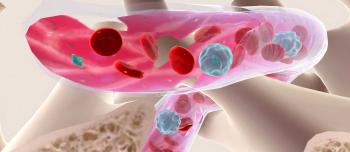CSL Behring reported interim phase 2/3 and 3 study data for its recombinant fusion protein linking coagulation factor IX with recombinant albumin (rIX-FP) for patients with hemophilia B. The results, presented on May 11, 2014, during the World Federation of Hemophilia (WFH) 2014 World Congress in Melbourne, Australia, showed an improved pharmacokinetic (PK) profile of the therapy.
The studies, phase 2/3 (patients age 12 to 61 years) and phase 3 (patients age 1 to 11 years), are both safety and efficacy trials of rIX-FP in 68 previously treated patients with severe hemophilia B. The studies are part of CSL Behring’s PROLONG- 9FP clinical developmental program.
Investigators compared the change in frequency of spontaneous bleeding events between on-demand and weekly prophylaxis regimens in patients previously receiving only on-demand treatment and the number of patients developing inhibitors (antibodies) against FIX. The study also compared prophylaxis regimens of different treatment intervals, including 7-day and 14-day intervals.
According to a CSL press release, the findings suggest an improvement in hemophilia B treatment by extending the time between infusions to 14 days or potentially longer, compared to the current standard of two to three times per week.
“Patients with hemophilia B and treating physicians are eager for innovative products that are able to decrease the dosing frequency while being effective and reliable in the prevention or treatment of bleeding episodes,” said Elena Santagostino, MD, PhD, and lead investigator of this study. “Our interim PK data from two Phase 3 studies, combined with the Phase 2 and 1/2 results, demonstrate that rIX-FP has the potential to satisfy this unmet need by offering a longer dosing interval and fewer injections.”
Source: CSL Behring press release dated May 11, 2014





